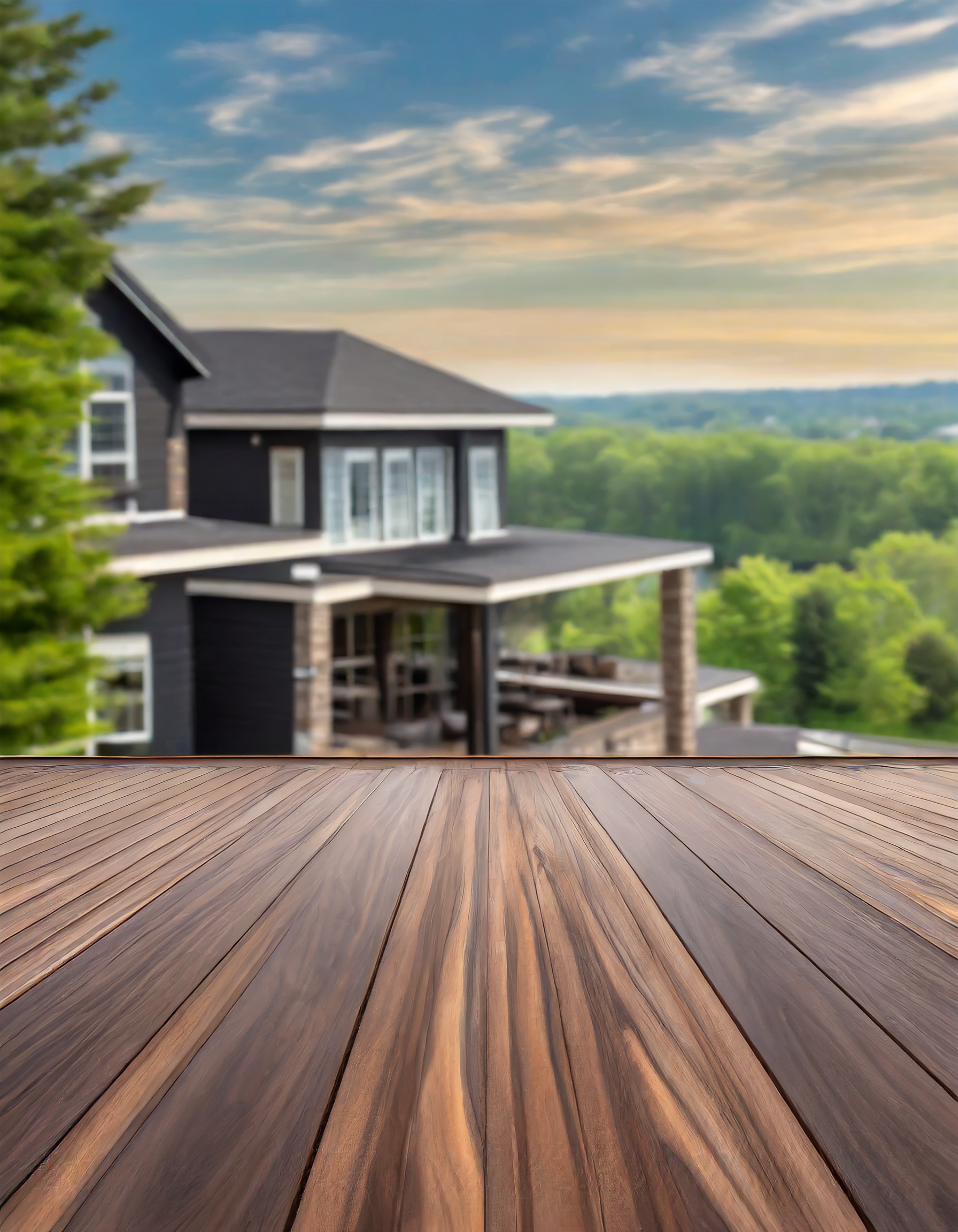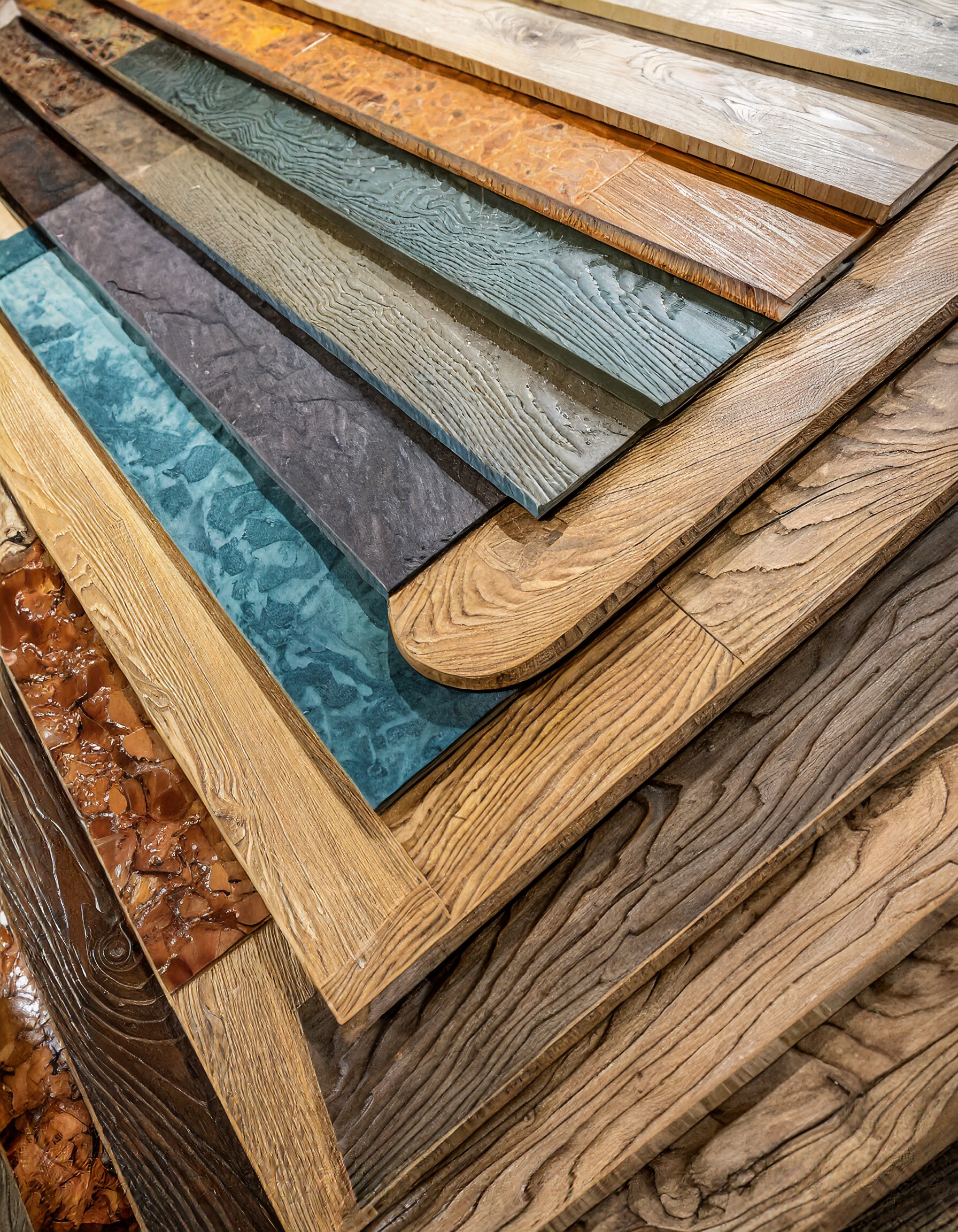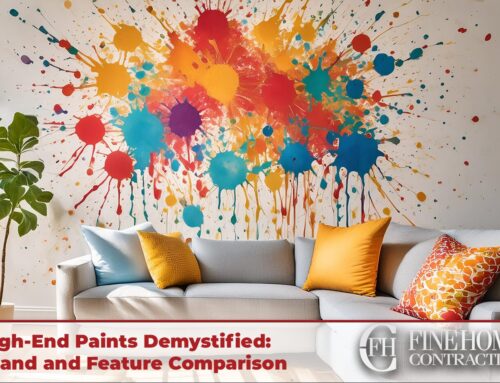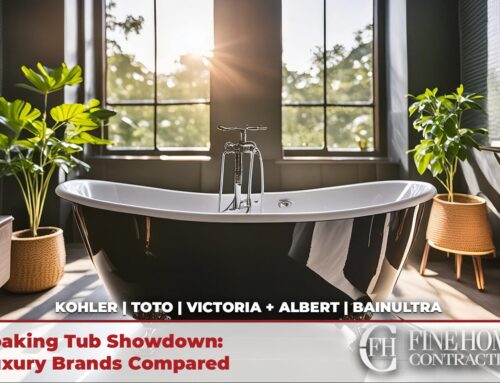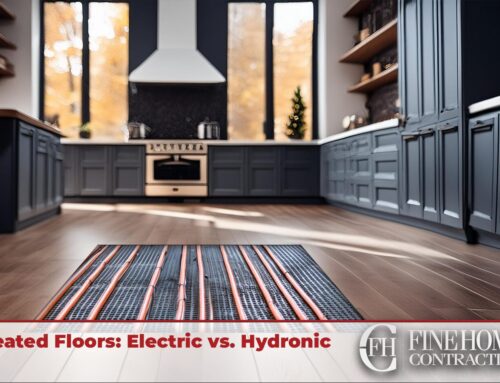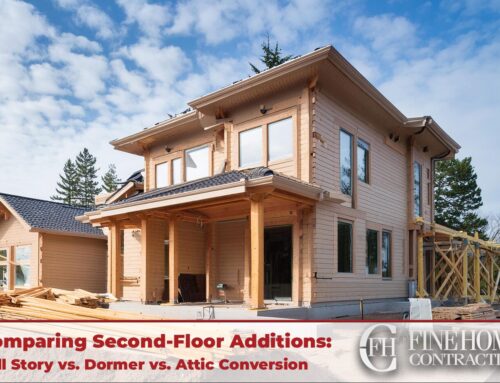If you’re looking at rebuilding a deck or porch, selecting the best deck material is no small feat: Especially considering the wide range of options available in the market. Despite the huge number of options, a few select materials stand out as the most reliable and common, one of those being Trex. In the world of decking, Trex has distinguished itself as a premier choice, redefining the expectations for both aesthetics and performance. In this guide, we’ll run through a quick explanation of what Trex is and how best to use it, as well as compare the other most common material options.
What is Trex?
Trex decking is a composite deck material designed as an alternative to wood. Originated in 1988, Trex is advertised as a high-performance, eco-friendly option compared to natural wood, and comes in a variety of aesthetic finishes that mimic real wood. Unlike wood, Trex doesn’t warp, crack, or splinter, requiring minimal upkeep, all without losing the look of natural wood.
Benefits of Trex include lower maintainance, longer lifespan, better ecological impact, and a wider variety of choices in color and texture than natural wood. Trex is also protected by a manufacturer warranty.
Trex vs Other Common Materials
When it comes to decking materials, the competition is fierce. Trex faces off against traditional wood, PVC, and other composites. Unlike wood, Trex doesn’t warp, crack, or splinter, requiring minimal upkeep. PVC, while low-maintenance, lacks the natural look and feel of Trex. We’ve arranged this table to make it easy to compare Trex and other materials for your project.
| Qualities \ Deck Materials | Pressure-Treated Wood | Cedar/Redwood | Composite Decking | PVC | Hardwood | Aluminum | Modified Wood | Plastic Decking |
|---|---|---|---|---|---|---|---|---|
| Price (Average sqft cost) | Low | Moderate | Moderate to High | High | High | High | High | Moderate |
| Maintenance (1-5) | 4 | 3-4 | 2 | 2-3 | 3-4 | 2-3 | 3 | 2-3 |
| Durability (1-5) | 3 | 3-4 | 3-5 | 4-5 | 4-5 | 4 | 4-5 | 3-4 |
| Resistance to Rotting | Moderate to Low | High | High | High | High | High | High | High |
| Resistance to Splintering | Moderate | High | High | High | High | Low | High | Moderate |
| Color Retention (1-5) | 3 | 3-4 | 4 | 4-5 | 4-5 | 4-5 | 4-5 | 3-4 |
| Environmental Impact | Low | Moderate | Varies | Moderate to High | Moderate to High | Low | High | Moderate to High |
| Installation Complexity (1-5) | 3 | 3-4 | 2-3 | 2-3 | 3-4 | 3-4 | 3-4 | 2-3 |
| Aesthetic Variety (1-5) | 3 | 4-5 | 4-5 | 3-4 | 4-5 | 3-4 | 4-5 | 2-3 |
| Temperature Resistance (1-5) | 3-4 | 3-4 | 4 | 4-5 | 4-5 | 4-5 | 4-5 | 3-4 |
| Longevity (1-5) | 3 | 3-4 | 4-5 | 4-5 | 4-5 | 4 | 4-5 | 3-4 |
Costs and Install Timelines
Investing in a Trex deck involves a balance between cost and long-term value. While the initial investment might be higher than traditional wood, the reduced maintenance costs and extended lifespan make Trex a wise financial choice.
Aesthetic Options
Your home is an extension of your style, and that should apply to your deck as well. Trex offers a myriad of aesthetic options to cater to diverse tastes. From classic wood tones to contemporary hues, incorporating your chosen colors and design themes is far easier with composite than trying to incorporate a matching natural wood to your scheme.
Trex Vs Pressure Treated Wood
While pressure-treated wood has its merits, and has long been the go-to product for new and replacement decks, Trex outshines it in terms of durability, maintenance, and environmental impact.
Pressure-treated wood, while a popular and cost-effective choice, is susceptible to rot over time, necessitating regular maintenance. Splintering is also a potential issue with wood decks, posing safety concerns and requiring vigilance in upkeep. In the battle against insects, pressure-treated wood offers some resistance, but the efficacy diminishes over years, leaving the deck vulnerable.
Trex stands out as more resilient against common concerns like rotting, splintering, and insect damage. Engineered with a blend of recycled wood fibers and high-performance polymers, Trex decks exhibit exceptional resistance to decay and insect infestations, ensuring longevity without the need for constant upkeep.


